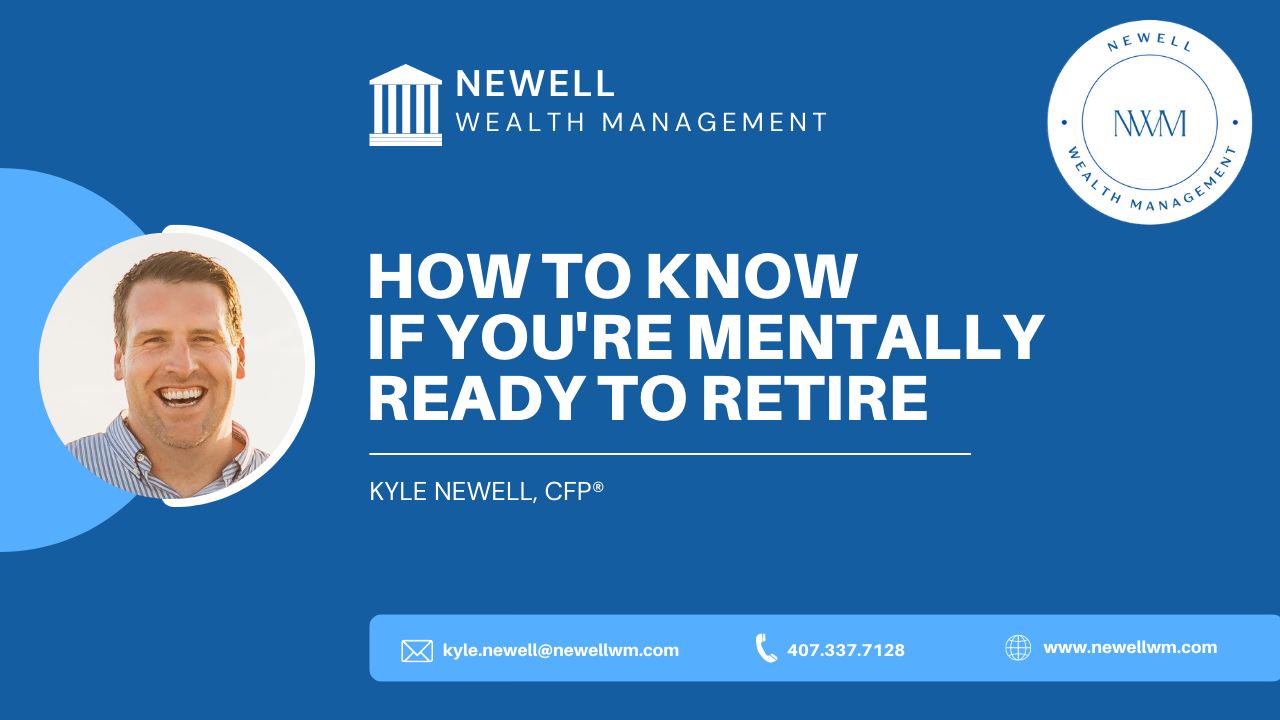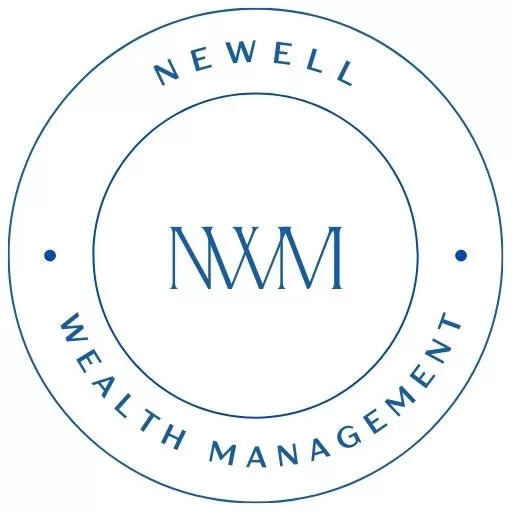How to Know If You’re Mentally Ready to Retire

Retirement is a big moment. You may be ready financially, but you also need to understand how to know if you’re mentally ready to retire. Are you mentally prepared to stop working and transition to your next life phase?
This is somewhat of a binary question because, on average, men generally look at this differently than women. That’s not to say this is an absolute. Each person is unique and has a different situation.
Identity and Relationships
In general, identity and relationships often form in the working world.
Whenever a man is looking at retiring, it’s hard to give up his career identity. This is especially true if he’s been successful in his career or in a senior leadership position. Stepping away from that can be challenging for men.
For men, it often has to get to the point when they’re fed up with things like red tape, corporate settings, or other work situations. Generally, a man is ready to retire once they’re essentially “over it.” They want to relax, take it easy, and do things they want to do and haven’t had the chance to do while working.
Women are often ready to retire much sooner because, generally speaking, they are more relationally driven. Once work gets to the point where
- They start to feel anxious about work
- Things are happening that they don’t like
- Their friends have retired
- They have more friendships outside of work
It becomes about relationships and wanting to spend more time with people they want to be around. In my experience with clients, women are usually ready sooner because less of their identity is wrapped up in the workplace.
Men and women are different; however, with that being said, there are certain things that everyone thinks through when preparing to retire. Here are some things to consider to help you understand how to know if you’re mentally ready to retire.
Retiring From vs. Retiring To
Ask yourself this question. Are you retiring to something or from something? The answer matters more than you may realize.
Retiring From
If you’ve said, “I’ve had enough. I’m done with the BS and the red tape. I’m gonna retire.” That’s okay. You’ve saved and sacrificed for the moment when you can call it quits.
However, if you’re just retiring from something, you’ll experience the immediate relief that comes with retiring. You’ll have that deep breath moment and enjoy some relaxation for the first bit of retirement.
But what happens after the newness of retirement has worn off?
Remember, retirement means you have a lot of free time on your hands. Many of us got a taste of this during the COVID when there was no work to do. You’ll have to spend a lot of time figuring out what you want to do now.
Honey Do lists have only so much on them, and you can watch only so much TV. Time becomes just a thing that exists. This can and does happen during retirement. To be mentally prepared to retire, consider what’s next and how you will fill your time.
You know what you’re leaving behind when you retire. What are you retiring to?
Retiring To
Researchers find that happiness in retirement centers around things like
- Being healthy
- Having strong relationships
- Spending money on things you like or want to do
Aside from leisurely activities, you can do some service work to keep your mind active and happy. Knowing what you are retiring to is a good indicator of how to know if you’re mentally ready to retire.

Retirement Objectives
The second consideration is knowing what your retirement objectives are. This ties into the first point of knowing what you are retiring to. Do you want to
- Travel
- Buy a vacation home
- Stay home and read
- Garden or do some other hobby
- Volunteer your time
What you’re trying to accomplish has a lot to do with how to know if you’re mentally ready to retire.
- What are your retirement objectives?
- How are your plans lined up to be able to do them?
Pay attention to this aspect of retirement planning. Knowing the answers to these questions can help you live a happy and fulfilling retirement lifestyle.
Relationships Matter
Are you married?
Do you have friends outside of work?
Relationships matter immensely, especially in retirement. When you’re no longer working, you no longer have the built-in social interaction that a workplace provides.
Relationships drive happiness. We are social beings. We are wired to want connections with others. Even introverts wish to have relationships with others.
Take a look at your relationships. Who are your friends? If they are all tied to work, it may be time to build some relationships outside the workplace. Social connections outside of work are essential to being mentally ready to retire.
Spouses or Partners
How to know if you’re mentally ready to retire involves discussions with your spouse or significant other. You may think retiring is a solo decision, but it isn’t. When it comes to retiring
- Are you on the same page?
- What are their thoughts, worries, and feelings about you retiring?
- Is one spouse retiring while the other continues to work?
When one person continues to work, it can cause tension in the relationship. This tension can stem from many things, like not having the free time you now enjoy. It can also be frustrating if the working spouse feels added pressure to provide. It’s important to ask, listen, and understand what your spouse or significant other thinks about your retirement.
You may not think so, but your spouse will considerably impact your mental thoughts and processes.
If you’re retiring at the same time, what are you two going to do together?
Take an honest look at your relationship. Is it strong, or have you drifted apart over the years? Is there some relationship mending that needs to happen before you retire? Having unlimited time together can be good or bad, depending on the strength of your relationship.
Finances
When determining whether you’re mentally ready to retire, you must recognize the financial aspect. Finances do affect happiness. Worrying about your finances may impact your desire or ability to do things leading to unhappiness. Having a solid financial retirement plan means you can relax and enjoy retirement.
Consider the following questions:
- What are your income sources?
- Do you have enough income to cover your expenses? Include items like health care and allow for inflation.
- Do you have secure income sources? Pension, social security, etc.
Financial security in retirement is proven to benefit your overall happiness and state of mind. You may be mentally ready to retire, but to maintain satisfaction, ensure you can financially retire.
Knowing what you want to do in retirement ties into your financial planning. Very few people want to retire and sit at home. If you do, that’s okay. It’s your retirement, and you can spend it how you like.
If you’re like most people I talk with and want to spend retirement going out and doing things or traveling, you want to make sure your financial plan covers that. It won’t be fun to have anxiety about money if you want to do something and worry that you can’t afford it.
Evaluate
Answering the question of how to know if you’re mentally ready to retire involves asking yourself some questions. Some are easy. Some are not. Go through these questions to ensure you plan for the full scope of retirement, including the non-financial aspects.
- Am I retiring from something or to something?
- What am I trying to accomplish or do in retirement?
- Where do most of my relationships exist?
- What does my spouse or partner think about me retiring?
- What does my financial situation in retirement look like?
Preparing to retire is an exciting time. It shouldn’t be overwhelming. If it is, you may not be mentally ready to retire. If you need guidance from an experienced financial planner to help assess your retirement plan, I’m happy to help.
We can meet virtually or in person if you live in the Central Florida area. Please email me at kyle.newell@newellwm.com, call/text at 407.337.7128, or schedule a meeting at Schedule – Newell Wealth Management (newellwm.com)
Important Information
Newell Wealth Management, LLC (“NWM”) is a registered investment advisor offering advisory services in the State of FL and in other jurisdictions where exempted. Registration does not imply a certain level of skill or training. The presence of this website on the Internet shall not be directly or indirectly interpreted as a solicitation of investment advisory services to persons of another jurisdiction unless otherwise permitted by statute. Follow-up or individualized responses to consumers in a particular state by NWM in the rendering of personalized investment advice for compensation shall not be made without our first complying with jurisdiction requirements or pursuant an applicable state exemption.
All written content on this site is for information purposes only and is not intended to provide specific advice or recommendations for any individual. Opinions expressed herein are solely those of NWM, unless otherwise specifically cited. Kyle Newell and NWM are neither an attorney nor an accountant, and no portion of this website content should be interpreted as legal, accounting or tax advice.
Material presented is believed to be from reliable sources and no representations are made by our firm as to other parties’ informational accuracy or completeness. There is no assurance that the views or strategies discussed are suitable for all investors or will yield positive outcomes. Investment involves risks including possible loss of principal and unless otherwise stated, are not guaranteed. Any economic forecasts set forth may not develop as predicted and are subject to change. All information or ideas provided should be discussed in detail with an advisor, accountant or legal counsel prior to implementation.
